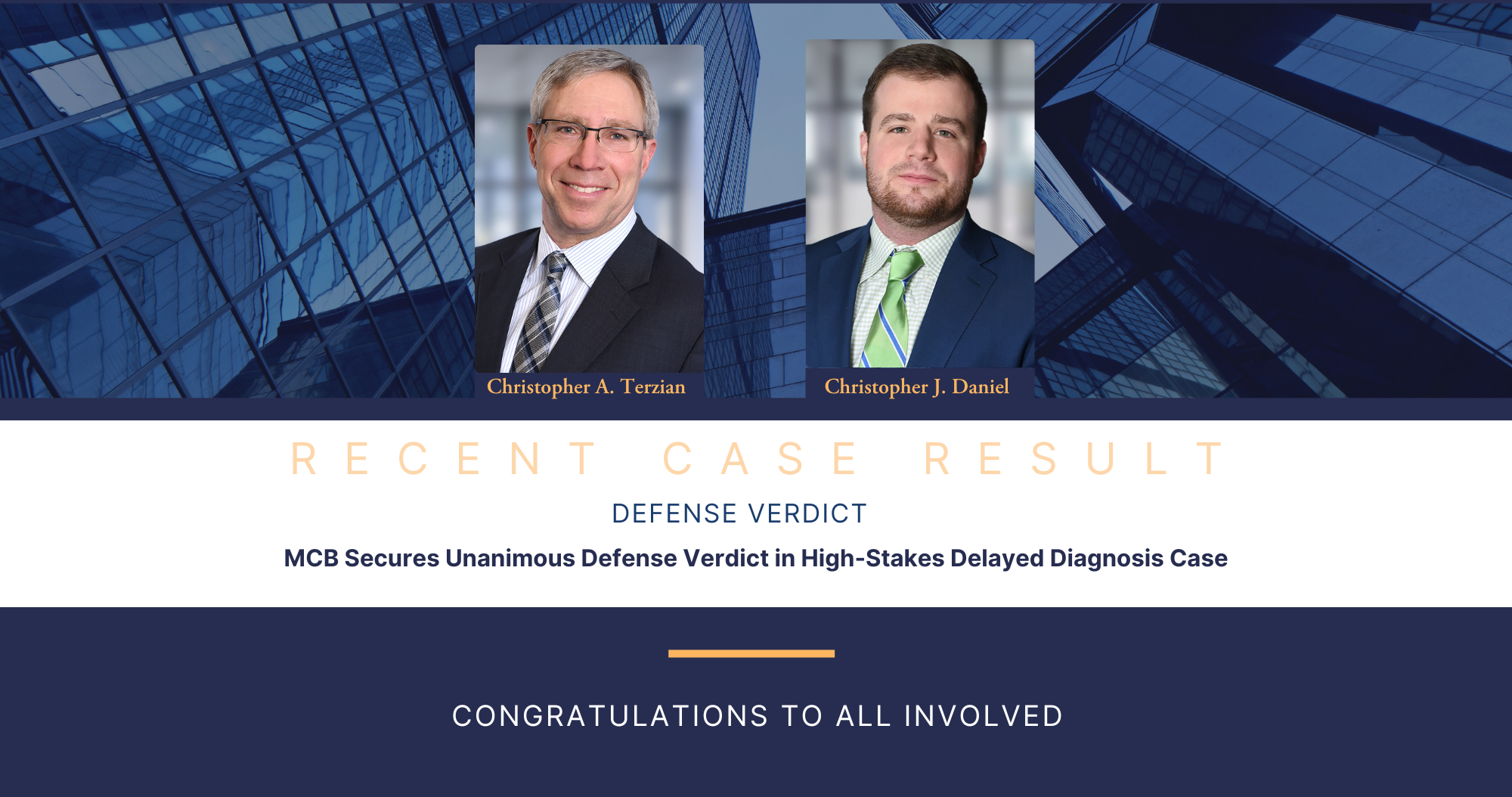
Senior Trial Partner Christopher A. Terzian, assisted by Partner Christopher Daniel, achieved a defense verdict in Supreme Court, Westchester County, in a jury trial before Judge David J. Squirrell. The plaintiffs alleged the defendant doctor departed from good and accepted gynecologic practice, leading to a delayed diagnosis of a non-malignant abdominal wall desmoid tumor. They asked the jury to award $1 million for past pain and suffering to the plaintiff wife, an unspecified amount for her future damages, and $400,000 for the plaintiff husband's alleged loss of services.
The plaintiff wife had twins delivered by the defendant doctor via C-section. Approximately 13 months later, she reported feeling a mass in her lower abdomen, just below the scar, during her annual gynecologic visit. The doctor had no recollection of the complaint, and his note from the visit made no mention of it. He examined her scar and abdomen as part of the visit and found no abnormalities.
Five months later, she visited a primary care physician and complained of swelling, induration, and mild discomfort near the C-section scar. An ultrasound was ordered, which led to the diagnosis of an abdominal wall desmoid tumor. She sought surgery, but a surgeon at Memorial Sloan Kettering advised against it due to the complexity and risk of recurrence if removed. She was instead treated with targeted medication that destroyed the tumor’s cellularity and turned it into fibrous tissue.
After about three years of treatment, the Oncologist advised the plaintiffs that the tumor had lost its cellularity and no further medical treatment was needed. She was taken off medication and has since been monitored radiographically to determine whether the tumor grows, remains stable, or regresses. The plaintiff wife alleged that the delayed diagnosis cost her the opportunity for surgical removal and forced her to endure three years of treatment with side effects including hair loss, nausea, vomiting, weakness, and sleep deprivation.
Mr. Terzian, through his expert gynecologist, argued that the doctor's care was within good and accepted practice of gynecology on the day she allegedly reported feeling a mass. His expert surgical oncologist explained that the tumor was difficult to palpate at the time because it was interwoven with the C-section scar. He further testified that desmoid tumors are benign and grow within healing tissue at the scar site. Medical therapy, not surgery, was the current and appropriate standard of care due to the complexity and high risk of recurrence following surgical removal.
Through his expert oncologist, Mr. Terzian also argued that the plaintiff wife was ultimately better off having received medical treatment. Surgery would have required permanent removal of abdominal muscles, leading to disfigurement, core weakness, and additional scarring.
The jury returned a unanimous defense verdict in 43 minutes, finding that the doctor had not departed from accepted gynecologic practice on the day of the alleged complaint. As a result, the jury did not need to determine whether the delayed diagnosis of the benign tumor caused any injury.
